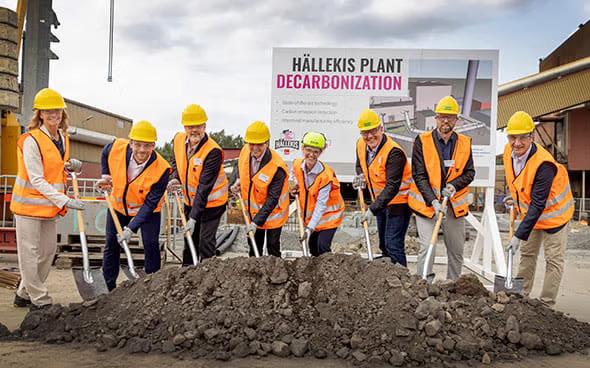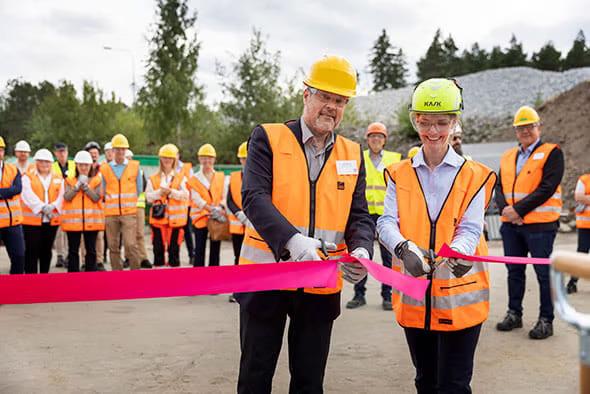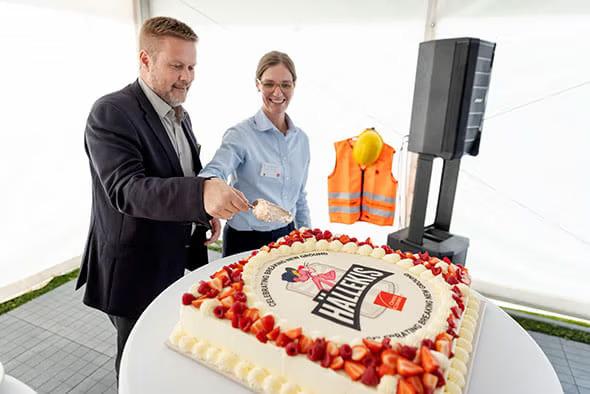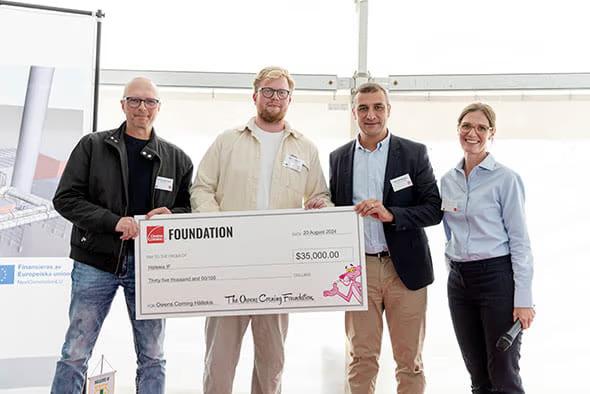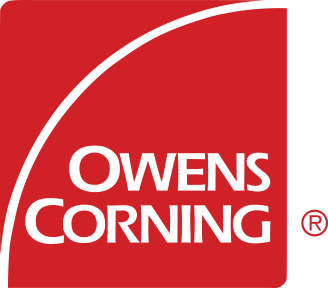Owens Corning Breaks Ground for Sustainability Investment at Paroc Hällekis
Owens Corning, owner of Paroc AB, celebrated breaking ground on its new sustainability investment at the Paroc Hällekis plant in Sweden. The plant is converting from coke-fired furnaces to electric melting which is estimated to reduce the plant’s scope 1 and 2 emissions by about 80 percent. The project plan is scheduled for a start-up of the electric melting furnace in 2027.
The project includes a new 7,500-square-metre facility consisting of two buildings. One building will house the new electrified furnace and the other will be used for raw materials handling and filtration processes.
The Hällekis plant manufactures stone wool insulation for use in building insulation and technical insulation applications. When the project is finalized, the investment will reduce the embodied carbon from products produced in Hällekis. The investment will enable employees at the Hällekis plant to develop their skills in operating a state-of-the-art electric melting furnace and working with a new, and more energy-efficient melting process with lower greenhouse gas emissions.
The event was attended by local dignitaries, industry experts, key partners, authorities, senior OC leaders, employees, and members of the community. It featured a ceremonial first dig, symbolizing the beginning of the construction of a new state-of-the-art electric melting furnace and the laying of the foundations of the two buildings announced in April this year.
The project is a significant milestone for the company’s commitment to achieving its greenhouse gas (GHG) emission reduction targets. Furthermore, the conversion will improve manufacturing efficiency and help ensure customers’ expectations are met in the European market also in the future. The project contributes to Owens Corning’s long-term greenhouse gas emissions goal of a 50% absolute reduction in Scope 1 and Scope 2 emissions by 2030, from a base year of 2018. This goal has been approved by the Science Based Targets Initiative to be aligned with the 1.5°C scenario.
“We have seen that the landscape for our industry in the Nordics is undergoing significant changes, carbon dioxide restrictions and expectations from customers. By proactively addressing these changes through projects like this, we can turn them into opportunities. This significant investment is an important step for not only our plant in Hällekis, but it also reinforces Owens Corning’s mission to build a sustainable future through material innovation.“ says Nico del Monaco, President Insulation at Owens Corning.
“It will increase our competitiveness in the Nordic market and our reputation of Paroc being a reliable and credible supplier of high-quality products. Our customers have expressed positive excitement about our commitment to sustainability and reducing carbon emissions. They also look forward to seeing the positive impact it will have on the environment and the stone wool supply chain.” says Jari Airola, Vice President Owens Corning Europe & Managing Director Europe Insulation.
“We are excited to begin the groundbreaking for our new sustainability investment and the reactions from the local community and employees have been very positive. These types of sustainability investments are important since they contribute to regional economic growth and our employees feel proud to be part of a company that prioritizes sustainability. This project reflects our dedication to making a positive impact on the environment and the communities we serve.” says Marie Stensson, Plant Leader, Paroc Hällekis.
During the ceremony, Owens Corning granted €35,000 from the Owens Corning Foundation to the Hallekis IF organization, a local charity that is creating activities and facilities for children to play and be active.
The Hällekis insulation plant conversion project receives support from the Industrial Leap (Industriklivet), the Swedish Energy Agency’s program to support Swedish industry’s transition to fossil-free.
*Scope 1 includes the direct emissions from our own manufacturing operations.
*Scope 2 include indirect emissions from the generation of purchased energy.

